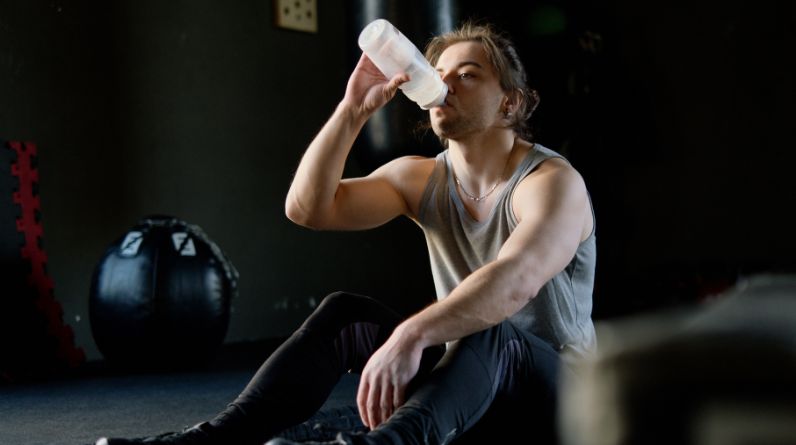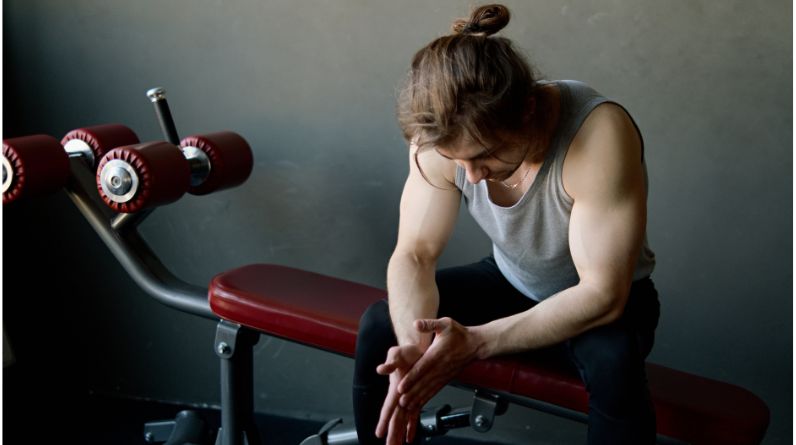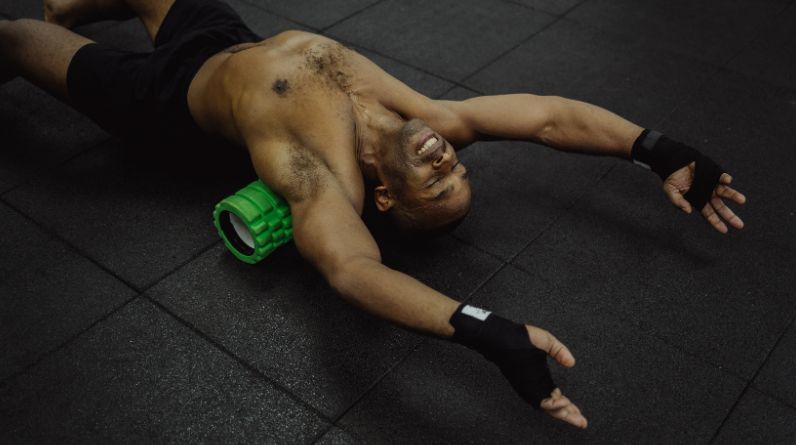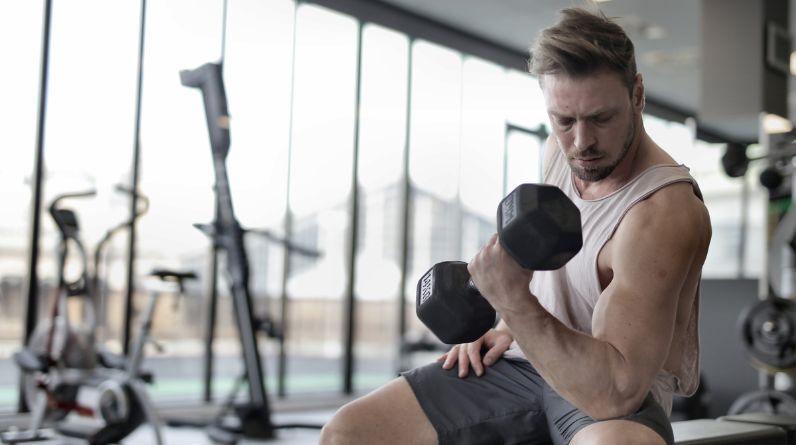
ENHANCING PERFORMANCE AND MUSCLE FUNCTION
Introduction
Hydration is a fundamental aspect of our overall health and well-being, and it holds particular significance for individuals engaged in intense physical activities, such as bodybuilders. As you embark on your journey to build strength and sculpt your physique, proper hydration practices become essential not only for your training but also for your overall performance. In this article, we delve into the significance of hydration for bodybuilders, exploring its impact on exercise performance and muscle function.
The Significance of Hydration for Bodybuilders
Hydration, the process of providing your body with the right amount of fluids, is critical for maintaining various bodily functions. However, for bodybuilders, this aspect takes on a heightened importance due to the demands of their training regimen. Engaging in intense workouts and resistance training places additional stress on the body’s systems, making hydration a key factor in ensuring optimal performance and recovery.
The Role of Hydration in Exercise Performance
Dehydration, even in its mild form, can have detrimental effects on exercise performance. It impairs the body’s ability to regulate temperature, leading to early fatigue and reduced endurance. This is particularly concerning for bodybuilders who push their limits during training sessions. Inadequate fluid intake can lead to decreased strength, compromised focus, and decreased workout efficiency.
Maintaining fluid balance during workouts is crucial. When you’re well-hydrated, your heart can pump blood more effectively, delivering oxygen and nutrients to your muscles. Dehydration disrupts this process, limiting your muscles’ ability to perform optimally and hampering your overall exercise capacity.
Hydration and Muscle Function
The relationship between hydration and muscle function is intricate and cannot be understated. Proper muscle contraction relies on an adequate balance of electrolytes and fluids. When dehydrated, this balance is disrupted, leading to cramps, muscle spasms, and reduced strength. Ensuring that your muscles are well-hydrated supports their ability to contract efficiently, allowing you to lift weights and engage in exercises with greater precision and power.
Moreover, hydration is integral to nutrient transport within your body. As you engage in strength training, your muscles undergo stress and microtrauma. Adequate fluid intake helps transport essential nutrients, such as amino acids, to muscle cells, facilitating the repair and growth process. Without proper hydration, your muscles might not receive the nutrients they need to recover effectively, potentially leading to delayed progress and increased risk of injury.
The Role of Hydration in Post-Workout Recovery
As a dedicated bodybuilder, your training doesn’t end when you leave the gym. Proper recovery is just as vital to your progress as the workouts themselves. Hydration plays a pivotal role in this recovery process, offering a range of benefits for your muscles after intense sessions. By ensuring adequate fluid intake, you support your body’s ability to repair, regenerate, and grow your hard-worked muscles.
One key benefit of hydration in post-workout recovery is its role in removing metabolic waste products. During intense exercises, your muscles produce waste products such as lactic acid. Staying hydrated aids in flushing out these waste products, preventing the build-up of toxins that can lead to muscle soreness and fatigue. Hydration essentially acts as a natural detoxifier, promoting a quicker recovery process.
Signs and Symptoms of Dehydration: Recognizing the Indicators
Recognizing the signs of dehydration is akin to deciphering your body’s distress signals. These cues are not to be underestimated, as they can be the first indications of an imbalance that might compromise your well-being and hinder your training progress. Familiarizing yourself with these signs allows you to be proactive in managing your hydration levels and avoiding potential setbacks.
Increased Thirst: One of the most apparent signs of dehydration is an increased sensation of thirst. Your body’s natural response to insufficient fluid levels is to trigger your thirst mechanism, encouraging you to replenish the water you’ve lost.
Dark Urine: The color of your urine can provide valuable insights into your hydration status. Dark yellow or amber-colored urine suggests that your body is conserving water by concentrating urine. On the contrary, pale yellow urine indicates a well-hydrated state.
Dry Mouth and Skin: Dehydration can lead to a dry mouth and parched feeling in your throat. Additionally, your skin might feel less supple and appear dry due to reduced moisture levels. These signs highlight the importance of maintaining adequate hydration for optimal bodily functions.
Feelings of Fatigue: Dehydration can contribute to feelings of fatigue and reduced energy levels. As your body’s fluid balance becomes compromised, essential bodily processes can slow down, leading to decreased physical and mental performance.
Recognizing these seemingly minor signs is pivotal for staying ahead of dehydration. They serve as early indicators that your body’s fluid levels are out of balance. Being attentive to these signals allows you to adjust your fluid intake accordingly, ensuring that your body remains adequately hydrated and ready to tackle your training endeavors.
Hydration Guidelines for Bodybuilders: Tailoring Your Fluid Intake
Understanding the right amount of fluid intake is pivotal for bodybuilders who aim for optimal performance. While a general guideline is to consume at least 3 liters (approximately 13 cups) of fluid per day, it’s essential to recognize that individual needs can vary based on multiple factors.
Activity Level: The intensity and duration of your workouts play a significant role in determining your hydration needs. Engaging in intense training sessions increases fluid loss through sweat, necessitating a higher fluid intake to maintain balance.
Climate: The environment you’re in can also influence your fluid needs. Hot and humid conditions lead to increased sweating and consequently, higher fluid requirements.
Body Size: Larger individuals typically have a higher total body water content and might require more fluids to stay adequately hydrated.
Workout Intensity: During intense workouts, your fluid loss can be substantial. It’s recommended to drink water before, during, and after your workouts to maintain hydration and support your body’s recovery process.
Understanding these factors allows you to tailor your fluid intake to your specific circumstances. By listening to your body’s cues and considering these variables, you can fine-tune your hydration regimen to optimize your performance and well-being.
Practical Tips for Staying Hydrated: Incorporating Hydration Into Your Routine
Ensuring consistent hydration is a foundational practice for bodybuilders. Incorporating hydration into your daily routine is not only feasible but also crucial, especially on workout days when fluid loss is more pronounced. Here are some helpful hints to keep yourself adequately hydrated:
Carry a Reusable Water Bottle: Having a reusable water bottle with you at all times serves as a visual reminder to drink water throughout the day.
Set Reminders: Set alarms or reminders on your phone to prompt you to take sips of water at regular intervals.
Flavor Water with Natural Additives: If plain water isn’t enticing, consider adding slices of citrus fruits, cucumber, or mint leaves to infuse a refreshing flavor.
Hydrating Foods: Incorporate hydrating foods like watermelon, oranges, and cucumbers into your meals and snacks.
Listen to Your Body: Pay attention to your body’s signals of thirst, and don’t ignore them. Taking small sips of water whenever you feel thirsty is a simple yet effective way to stay hydrated.
By integrating these practical tips into your daily routine, you create a supportive environment for consistent hydration. This proactive approach helps ensure that your body remains adequately fueled, ready to meet the demands of your training and achieve your fitness goals.
The Relationship Between Hydration and Muscle Definition: Beyond the Surface
While the connection between hydration and muscle performance is well-established, the impact of hydration on muscle definition might surprise you. Beyond its role in bodily functions, proper hydration can significantly affect the visual appearance of your muscles.
Muscle Fullness: When your body is optimally hydrated, your muscles appear fuller and more defined. This effect is particularly noticeable after workouts when muscles are more engorged with blood and nutrients.
Aesthetic Impact: Dehydration can lead to a loss of muscle volume and definition. Your muscles might appear flatter and less prominent due to reduced water content. This aesthetic impact can affect how your hard-earned muscle gains are perceived.
By maintaining proper hydration, you not only support your muscle function and performance but also enhance the visual impact of your efforts. This added dimension of muscle definition can be a motivating factor in your bodybuilding journey.
Conclusion
In the pursuit of bodybuilding excellence, no detail is too small to overlook. The role of hydration in this journey is undeniable, impacting your overall health, exercise performance, recovery, and even the aesthetic outcome of your hard work. By understanding the signs of dehydration, following hydration guidelines, adopting practical strategies, and recognizing the visual impact of hydration on muscle definition, you empower yourself to achieve peak performance and maximize your results. Prioritizing hydration is a fundamental step toward unlocking your full potential as a bodybuilder, ensuring that each drop of water you consume propels you closer to your goals.
Frequently Asked Questions
1. Does caffeine dehydrate the body?
Caffeine, commonly found in coffee and tea, can have a mild diuretic effect, meaning it may increase urine production. However, moderate consumption of caffeine within reasonable limits is unlikely to lead to significant dehydration. If you’re a regular caffeine consumer, your body can adjust to its diuretic effects, and any potential increase in fluid loss is usually compensated by the fluids in the caffeinated beverages.
2. Can you overhydrate?
While staying hydrated is crucial, overhydration (hyponatremia) can indeed occur if you excessively consume fluids without maintaining proper electrolyte balance. Electrolytes, such as sodium and potassium, play a vital role in maintaining fluid balance in and around cells. Consuming excessive amounts of water without sufficient electrolyte intake can dilute these minerals in the body, leading to imbalances. This condition is rare and often associated with endurance events where individuals consume large quantities of water without replenishing electrolytes.
3. What are indicators of proper hydration?
Proper hydration can be indicated by clear or pale yellow urine. Adequate fluid intake helps maintain the proper dilution of urine, reflecting good hydration levels. Additionally, the absence of extreme thirst and consistent energy levels are also signs of being well-hydrated. Feeling sluggish or fatigued can sometimes be linked to mild dehydration.
4. How does dehydration affect my workout performance?
Dehydration can significantly impact workout performance. It impairs your body’s ability to regulate temperature, leading to quicker overheating during exercise. This can result in decreased endurance, strength, and overall performance. Dehydration also compromises blood flow to muscles, hindering the delivery of nutrients and oxygen essential for optimal muscle function. As a result, you might find it challenging to push yourself and achieve your best results.
5. Should I drink water only during workouts, or is it essential throughout the day?
Staying hydrated is vital throughout the day, not just during workouts. Dehydration can accumulate gradually, and maintaining consistent fluid intake supports your overall health and well-being. Proper hydration contributes to steady energy levels, efficient metabolism, and even cognitive function. Ensuring you’re well-hydrated before and after your workouts enhances your exercise performance and recovery.
6. Can hydration impact muscle soreness and recovery?
Yes, hydration plays a significant role in muscle soreness and recovery. Proper fluid intake helps transport nutrients, including electrolytes and amino acids, to muscle cells, aiding in repair and recovery processes. Additionally, staying hydrated supports the elimination of metabolic waste products that accumulate during exercise, helping to reduce post-workout muscle soreness. Inadequate hydration can delay the recovery process and potentially lead to more prolonged muscle discomfort.
7. Is it possible to overhydrate?
While overhydration is relatively rare, it’s a condition known as water intoxication or hyponatremia. This occurs when you consume an excessive amount of water in a short period without replenishing electrolytes. Electrolytes like sodium are essential for maintaining fluid balance inside and outside cells. Diluting these electrolytes through excessive water consumption can disrupt cellular functions and potentially lead to swelling of cells, particularly in the brain. It’s important to maintain a balance between fluid intake and electrolyte levels to prevent overhydration.
8. Should I rely on sports drinks or stick to water for hydration during workouts?
For most individuals, water is an effective and sufficient option for staying hydrated during workouts. Water helps maintain fluid balance and supports essential bodily functions. However, in cases of prolonged and intense exercise lasting more than an hour, sports drinks containing electrolytes can be beneficial. These drinks help replace lost minerals like sodium and potassium that are lost through sweat. However, it’s important to choose sports drinks with minimal added sugars and avoid those that can hinder hydration with excessive sugar content.
9. How can I gauge my hydration status during workouts?
Monitoring the color of your urine is a simple and practical way to assess your hydration status. Clear to pale yellow urine usually indicates proper hydration, as it suggests a balanced dilution of waste products and fluids in your body. On the other hand, dark yellow or amber-colored urine may indicate dehydration, signaling that your body is conserving fluids and that you need to drink more water.
10. Can proper hydration impact my body’s ability to burn fat?
Yes, adequate hydration plays a role in optimizing your body’s metabolism, which can impact fat loss. Staying hydrated helps maintain efficient metabolic processes, including the breakdown of fats for energy. Proper hydration ensures that your body’s enzymatic and chemical reactions occur smoothly, allowing for efficient energy production from stored fat. Additionally, when you’re well-hydrated, your body is better equipped to eliminate waste products and toxins, which can indirectly support your body’s fat-burning capabilities.



